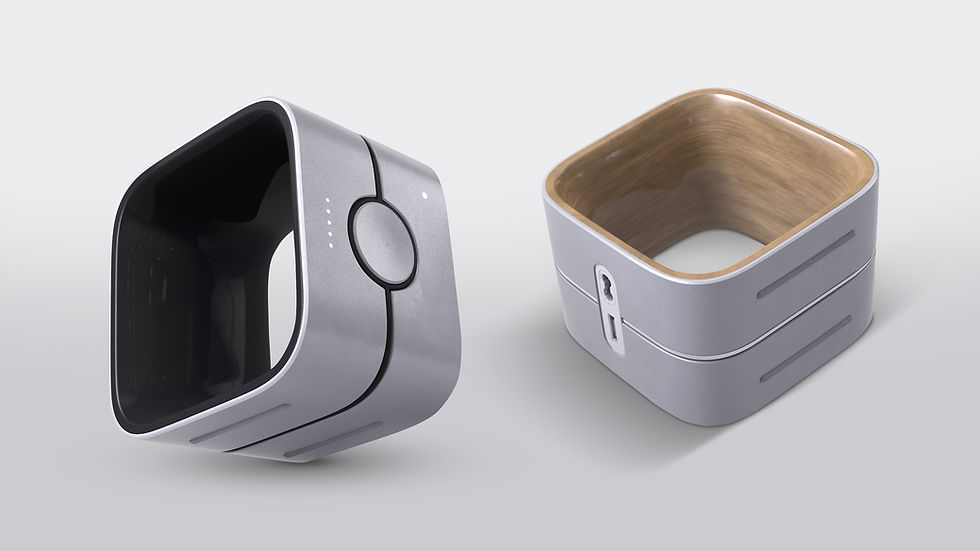B2 student? You only need this comprehensive list of over 100 adjectives categorized by type.
- Matt Mueller
- Oct 19, 2024
- 3 min read
Updated: Oct 19, 2024
Adjectives modify nouns and pronouns. There are 13 different categories of adjectives that describe the various ways adjectives can be used in the English language. Grammar guides can help you understand the distinctions between these categories, including 13 Types Of Adjectives And How To Use Them. These guides focus on lists of adjectives and provide quick tips on using them.

Descriptive adjectives are a broad category of adjectives that describe the characteristics, traits, or qualities of a noun or pronoun. In English, descriptive adjectives are often placed directly before the noun they are describing. For instance, "Excited children ate delicious treats in the colorful cafeteria."
Examples of descriptive adjectives include:
- beautiful
- witty
- wicked
- confusing
- rich
- new
- strange
- rocky
- circular
- helpful
- competent
- smelly
- stable
- grumpy
- devoted
- smart
- muscular
- graceful
- scary
- safe
- wooden
- sleepy
- tardy
- hungry
- strange
- hopeful
- proud
- new
- dainty
- royal
- arrogant
- round
- efficient
- youthful
- cumbersome
- fickle
- mild
- expensive
- small
- rude
- generous
- courageous
- zany
- thin
- round
- oval
- dark
- hot
- modern
- petite
- weary.
Compound adjectives are formed from multiple words connected by hyphens. For example, "We all enjoyed some ice-cold sodas."

Examples of compound adjectives include:- old-fashioned
- run-of-the-mill
- middle-of-the-road
- heavy-duty
- happy-go-lucky
- see-through
- easy-going
- big-time
Comparative adjectives are used to compare two different people or things. Most comparative adjectives in English end in -er, while others are denoted with "more." For example, "My brother is stronger than yours."
Examples of comparative adjectives include: - better
- bigger
- older
- angrier
- prettier
- smarter
- kinder
- more determined
- more interesting
Superlative adjectives are used to compare more than two people or things by indicating which one is the most supreme or extreme. Most superlative adjectives in English end in -est, while others are denoted with "most" or "least." For example, "I thought she was the most creative artist on the planet."
Examples of superlative adjectives include
- better
- bigger
- older
- angrier
- prettier
- smarter
- kinder
- more determined
- more interesting
Proper adjectives are formed from proper nouns. For example, "At the grocery store, we bought Mexican tortillas, German sausage, and French cheese."
Examples of proper adjectives include:
- Viennese
- Russian
- Orwellian
- Shakespearean
- Spartan
- Draconian
- Titanic
Participial adjectives are based on participles, which are words that usually end in -ed or -ing and derive from verbs. For example, "The frightened students ran away from the terrifying clown."
Examples of participial adjectives include:
- Viennese
- Russian
- Orwellian
- Shakespearean
- Spartan
- Draconian
- Titanic
Distributive adjectives are used to refer to members of a group individually. For example, "Both of the team captains took the time to congratulate every member of the team."
Examples of distributive adjectives include each, either, neither, and any.
Limiting adjectives restrict a noun or pronoun rather than describe any of its characteristics or qualities. For example, "The building had twelve floors, hundreds of windows, and several unique features."
Examples of limiting adjectives include a/an, some, few, dozen, eight, and thousands.
Possessive adjectives are used to express possession or ownership. For example, "Everyone brought their own dish and my mom made her famous punch for our potluck."
Examples of possessive adjectives include your, our, its, and his.
Interrogative adjectives are used to ask questions. For example, "What is the fastest way to get this done?"
The three interrogative adjectives in English are what, which, and whose.
Demonstrative adjectives are used to express relative positions in space and time. For example, "I think that colour looks great on you, but this one matches those shoes better."
The four most commonly used demonstrative adjectives in English are this, that, these, and those.
Many descriptive adjectives are commonly used as attributive adjectives. Attributive adjectives are usually directly placed before the noun they modify.
#Adjectives #EnglishLanguage #Grammar #DescriptiveAdjectives #ComparativeAdjectives #SuperlativeAdjectives #CompoundAdjectives #ProperAdjectives #ParticipialAdjectives #DistributiveAdjectives #LimitingAdjectives #PossessiveAdjectives #InterrogativeAdjectives #DemonstrativeAdjectives #LearningEnglish #LanguageLearning #AllThingsEnglish




Comments